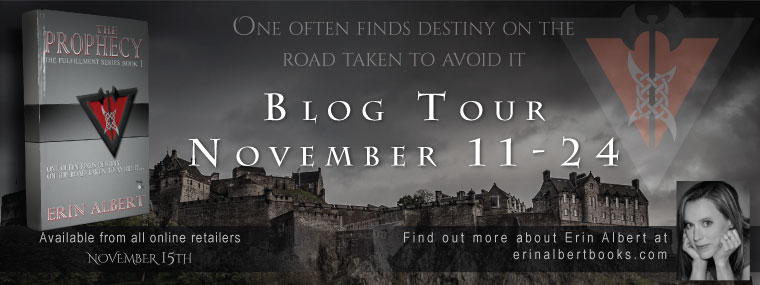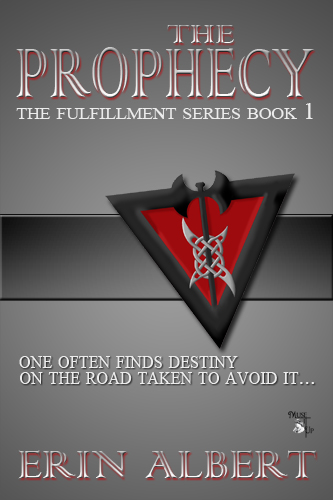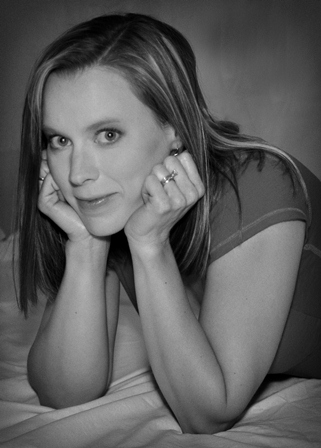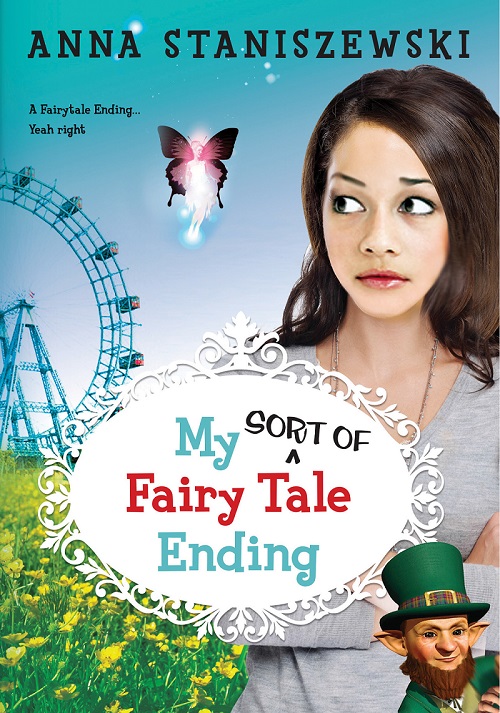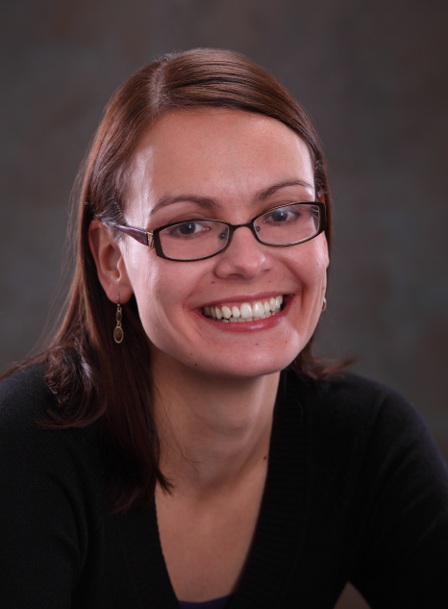Let’s all help Erin Albert celebrate the release of her fabulous YA fantasy The Prophecy (see my 5-star Goodreads review here). Today she’s sharing a bit about her writing process and a giveaway. Welcome, Erin!
First of all, I want to give a big shout out and virtual hug to my editor and friend, Katie, for hosting me today!!
Katie asked me to give a little bit of information about my writing process. If you dare, enter the inner workings of my mind… 😉
What am I working on?
I am always working on multiple projects. Currently, I am revising the sequel, The Outlanders, to my young adult fantasy debut novel, The Prophecy (which released November 15). I also have a futuristic thriller called Number 25598, a middle grade fiction in the vein of Judy Blume called Meet Kit: An American Boy, and another young adult fantasy novel without a title—all in progress.
Why do I write what I do?
I write young adult books because I LOVE young adult books. My friend and Dream Team member Danielle Craver (she created all of the crests for The Prophecy) got me hooked on the YA genre, and I’ve read that almost exclusively ever since. Epic high fantasy appeals to me because I’ve always loved Arthurian legend. When George R.R. Martin combined that time period with fantastical elements, my mind sprung to life. Reading fantasy allows a person to fully immerse in a totally different world, escaping this one completely. Who doesn’t need a good escape every now and then?
How does your writing process work?
I am a total pantser, which means I do not plan a thing. I have a rough idea of how I want the story to start and how I want it to end, but I let the characters take over for the middle. Sometimes that gets me in some logic trouble, but I’m fortunate enough to have my Dream Team and critique partners to catch those little snafus.
The demands on my life and time afford me a very short window to get my writing done, usually between 3pm-5pm. I have ADD, so I always have to drink something caffeinated to help me focus. Also, a little container of chocolate is a creative must. I seek to write a chapter a day (my Dream Team member and timekeeper, Kim Sharp, requires a new chapter to read each night which keeps me on task).
The creative portion of my work takes me very little time. I wrote the entire Fulfillment Trilogy in 3 months. But I am also an anal grammar freak, so editing the work takes me MUCH longer. It’s a painstaking process.
So, to recap: Afternoon writing time with chocolate and caffeine, 1 chapter a day, and edit, edit, edit!
Thanks for stopping by and reading my post!!
Growing up on a small farm in the kingdom of Vanguard, seventeen-year-old Layla Givens lives a deceptively tranquil existence. But her carefully constructed life quickly falls apart when she’s abducted by a religious zealot who proclaims her The Fulfillment of an ancient peace prophecy and whisks her away to marry her greatest enemy.
Wilhelm, Prince of the Ethereals, is reluctant to meet his new bride. He’s grown up believing Vanguards are evil, an enemy to fight and fear…not love. Can he set aside his prejudices and work alongside Layla to bring lasting peace after centuries of war?
Nash, a loner who has never fit in, carries a huge secret, one big enough to destroy both kingdoms. When he accidently meets Layla, he’s no longer content to live in the shadows, but he must resist his growing attraction—for her safety and for the longevity of the two kingdoms.
When Nash’s secret is revealed, a firestorm sweeps through both realms, with Layla at the center. Now she must choose between duty and desire while the fate of two nations hangs in the balance.
The Prophecy can be purchased at the MuseItUp bookstore, Amazon, Barnes & Noble, Kobo, and other ebook retailers.
Erin Albert is an author and fitness trainer. Since she picked up Morris the Moose Goes to School at age four, she has been infatuated with the written word. She went on to work as a grammar and writing tutor in college and is still teased by her family and friends for being a member of the “Grammar Police.” In her free time, Erin enjoys acting, running, kickboxing, and, of course, reading and writing.
Find Erin online:
Twitter: @ErinAlbertBooks
Facebook: https://www.facebook.com/pages/Erin-Albert-Books/182769448541270
Website: www.erinalbertbooks.com
Goodreads: http://www.goodreads.com/book/show/18160774-the-prophecy
